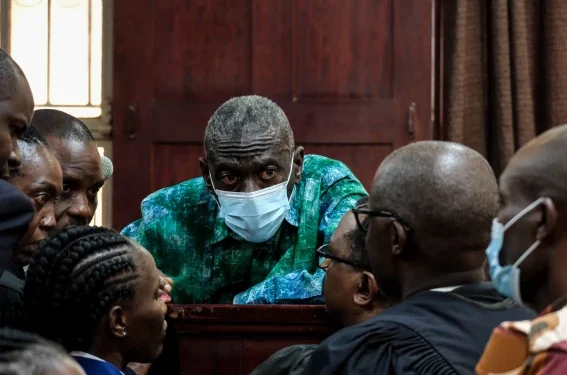Governor of the Bank of Ghana (BoG) has clarified that the monetary policy response by the Central Bank to tackle inflation was targeted at the second round effects of supply-side shocks.
According to Dr. Ernest Addison, BoG took notice of several arguments by some stakeholders arguing that the current inflation problem is caused by supply-side shocks which cannot be resolved by raising the policy rate especially because the inflation the country is experiencing is imported.
Likewise, the Chairman of the MPC acknowledged that BoG is very much aware that supply-side shocks are more difficult to deal with.
He, therefore, explained that the policy rate tightening emanated from the fact that the MPC assessed that the shocks are becoming embedded in domestic prices. Oil price shocks for example, he said, send price impulses and spreads to other prices in the economy and then affect economic agents’ expectations.
“Consequently, the policy response to the challenges have been swift, which has seen implementation of prudent monetary and fiscal policies to regain macroeconomic stability. Indeed, the inflation challenge has brought to the fore the importance of stability which we take for granted and has shown clearly that macroeconomic stability is a necessary condition needed to enhance confidence and build back better from the pandemic/war effects”.
Dr. Addison
High risks of amplifying inflation
Speaking at the 6th CEO Summit, the Governor underscored that although growth prospects remain positive, recent macroeconomic challenges have dampened consumer and business confidence in the domestic economy.
Dr. Ernest Addison warned that the upside risks to the inflation outlook are significant, and the second-round effects of upward adjustments in ex-pump prices and possible utility tariffs could further amplify inflation pressures in the outlook.
Cumulatively, since November 2021, the Bank’s MPC has raised the policy rate by 550 basis points. First, 100 basis points in November 2021, then 250 basis points in March 2022, and additional 200 basis points increase in May. Currently, the policy rate stands at 19 percent. These tight monetary policy actions are expected to dampen the heightened inflationary pressures in the medium term.
Recent price developments indicate elevated pressures from both domestic and external sources. These include the global energy and food price shock, and its consequential upward adjustments on domestic ex-pump petroleum prices and transportation costs, domestic food prices, as well as the pass-through effects of the recent exchange rate depreciation.
Headline inflation has increased sharply from 13.9 percent in January 2022 to 23.6 percent in April 2022, driven by both food and non-food prices. The current inflation of 23.6 percent is about three times the central target of the Central Bank of 8.0 ± 2%. This, Dr. Addison said, “has significantly complicated the conduct of monetary policy, making those of us in charge very uncomfortable”.
Elevated external vulnerabilities
The developments in the global economy have impacted Ghana strongly as it is occurring at the same time that the country is not able to access capital markets to raise money due to the ratings downgrade, as it has done for the past few years.
This has elevated Ghana’s external vulnerabilities and translated into balance of payments pressures, although, the trade surplus improved somewhat, due to higher crude oil export earnings.

However, the significant net portfolio reversals and weak inflows into the capital and financial account resulted in a widened balance of payments outturn and loss of reserves in the first quarter of 2022. The prevailing tight global financing conditions, and further policy rate hikes in advanced economies continue to make the external financing conditions unfavorable, posing real risks to the external outlook.
The developments have also impacted Government finances and created financing challenges for the budget. Meanwhile, Dr. Addison said the issuance of bonds and securities have not been met with significant uptakes by the market.
In response, the Government announced a series of expenditure cuts of up to nearly 30 percent to deal with the situation. It is expected that the US$2 billion dollar syndicated facility will provide some relief to both the budget and the balance of payments, the Governor assured the gathering of CEOs & Captains of Industry.
READ ALSO: IFEST Warns Of Drastic Effect Of GES and MOE’s Relationship On Education System























